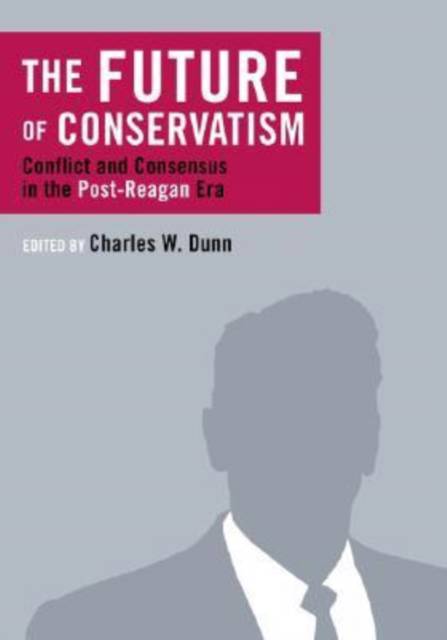
- Afhalen na 1 uur in een winkel met voorraad
- Gratis thuislevering in België vanaf € 30
- Ruim aanbod met 7 miljoen producten
- Afhalen na 1 uur in een winkel met voorraad
- Gratis thuislevering in België vanaf € 30
- Ruim aanbod met 7 miljoen producten
Zoeken
€ 23,95
+ 47 punten
Omschrijving
Once on the wings of the American political stage, conservatism now plays a leading role in public life, thanks largely to the dynamic legacy of Ronald Reagan. But despite conservatism's emergence as a powerful political force in the last several decades, misunderstandings abound about its meaning and nature--economically, internationally, philosophically, politically, religiously, and socially. In examining these misunderstandings, The Future of American Conservatism: Consensus and Conflict in the Post-Reagan Era reveals the forces that unite, and the tensions that divide, conservatives today. Edited by noted Reagan scholar Charles W. Dunn, this collection casts conservatism as a collage of complexity that defies easy characterization. Although it is commonly considered an ideology, many of conservatism's foremost intellectuals dispute this notion. Although it is thought to embody a standard set of principles, its principles frequently conflict. Although many leading intellectuals, liberal and conservative, believe that conservatism lacks a significant tradition in America, it has contributed more to American life than the credit lines indicate. And although it is usually thought to create homogeneity among its adherents, in truth conservatism is marked by a great deal of heterogeneity in both its adherents and its ideas. In fact, conservatism's complexity may well be its strength--or so the essays gathered here suggest. In painting a bright picture of the prospects for conservatives, The Future of American Conservatism is a timely and thought-provoking volume.
Specificaties
Betrokkenen
- Auteur(s):
- Uitgeverij:
Inhoud
- Aantal bladzijden:
- 250
- Taal:
- Engels
- Reeks:
Eigenschappen
- Productcode (EAN):
- 9781933859224
- Verschijningsdatum:
- 15/05/2007
- Uitvoering:
- Paperback
- Formaat:
- Trade paperback (VS)
- Afmetingen:
- 163 mm x 222 mm
- Gewicht:
- 222 g

Alleen bij Standaard Boekhandel
+ 47 punten op je klantenkaart van Standaard Boekhandel
Beoordelingen
We publiceren alleen reviews die voldoen aan de voorwaarden voor reviews. Bekijk onze voorwaarden voor reviews.











